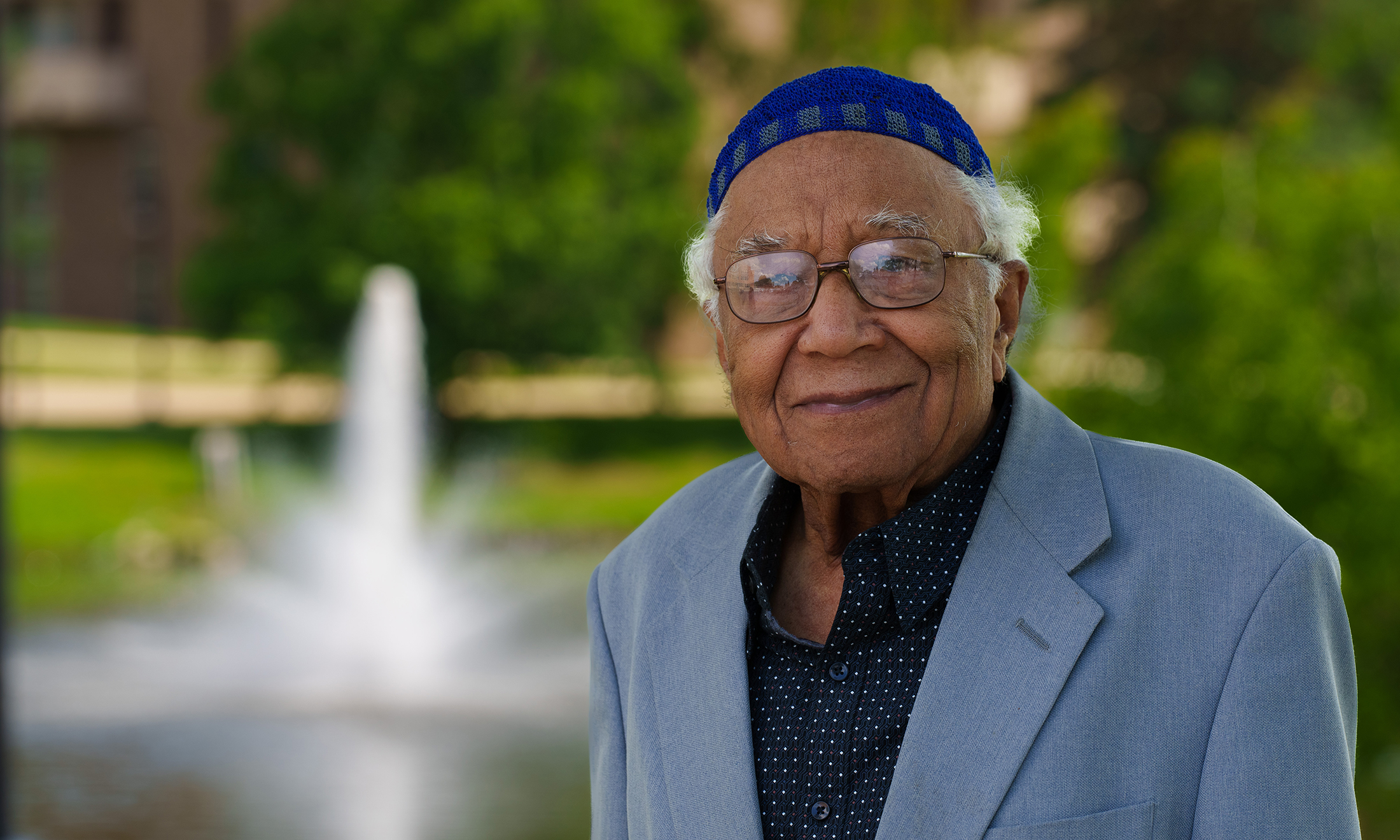- YouTube
- TikTok
A Legacy of Advocacy and Promoting Opportunity
A look at Distinguished Professor Emeritus Karl D. Gregory's legacy

Distinguished Professor Emeritus Karl D. Gregory, Ph.D., has dedicated his life to advocating for others. Throughout his illustrious career as a professor, economic advisor, and lifelong activist for racial equality and civil rights, he has consistently worked toward creating a more just and equitable society. Now, he is paving the way for future scholars through the establishment of the Dr. Karl D. Gregory Endowed Scholarship, which will provide financial support to students in need, with a special emphasis on first-generation college students. The first award from this scholarship will be presented to a deserving student this summer.
Dr. Gregory retired as a distinguished professor of economics from OU’s School of Business, where he served from 1970 to 1996. However, his impact extends far beyond the classroom. In 1968, he served as the vice chancellor for urban affairs under Chancellor Woody Varner, and he played a significant role in the administration of MSU Oakland, which is now named Oakland University. His passion for helping students achieve success in education contributed to the development of diversity and equal opportunity initiatives at OU.
As a greatly respected professor, Dr. Gregory transformed the classroom by infusing it with real-world experiences, sharing the depth of his life’s journey, and fostering an unwavering sense of empathy and understanding among his students. "Over several decades, Karl’s teachings resonated with our students, as his exceptional leadership, role modeling, and genuine care earned him the admiration from both students and colleagues. Through conscientious mentoring, he guided students by empowering them to pursue their chosen careers. The establishment of a scholarship bearing his name not only honors his legacy but also ensures continued success of future students. Personally, he has been a beacon of hope and inspiration for me,” shared Glenn McIntosh, senior vice president for student affairs and chief diversity officer.
Dr. Gregory's dedication to advocacy and public service extends to his work during the administrations of several U.S. presidents, including Kennedy, Johnson, Carter, and Reagan. He was selected by the U.S. Secretary of Commerce to serve on the U.S. Census Bureau's Advisory Committee on the African-American Population for the 1980 and 2010 censuses. Additionally, he served as an advisor to Michigan governors and held positions as a visiting scholar and executive staff member for the Congressional Budget Office in Washington, D.C.
Beyond his government service, Dr. Gregory made significant contributions to various organizations and initiatives. He served on the board of directors of the Detroit Branch of the Federal Reserve Bank of Chicago and played a pivotal role as the chief organizer and first chairman of the board of directors of the First Independence National Bank of Detroit. In 1972, he collaborated with Reverend Jesse Jackson to draft an Economic Bill of Rights. He also worked as a consultant to the NAACP Task Force on Africa and served as a U.N. Senior Economic Advisor on the establishment of an export zone in China.
Recognizing his lifelong commitment to social justice, Dr. Gregory received the Bishop H. Coleman McGehee, Jr. Lifetime Achievement Award from the Michigan Coalition for Human Rights. This prestigious award honors his tireless efforts in advocating for racial equality, civil rights, and human rights. His accomplishments as an economist, advisor, and educator have left a positive mark on both local and global communities.
Dr. Gregory's personal journey has deeply influenced his dedication to providing opportunities for underprivileged individuals, particularly those who are the first in their families to pursue a college education. Reflecting on his own upbringing, he shared, "My brother and I were the first in our immediate family to go to a university. My father didn't even go to high school as such. My parents are from Jamaica, where everyone was encouraged to at least go into a trade. My father was a tailor, and my mother was trained as a nurse in Jamaica. She was the first African American nurse on the staff at Women's Hospital in Detroit, for African American women were not being trained as nurses in Michigan at that time."
Throughout his life, Dr. Gregory has been a strong advocate for providing opportunities to those who might otherwise be left behind. He firmly believes that education is a source of advancement for individuals, particularly those who are underserved and may struggle to reach their full potential.
Driven by his commitment to narrowing disparities and providing equal opportunities, Dr. Gregory has devoted himself to helping people develop skills and the ability to provide for themselves and their families. Having witnessed discrimination and limited opportunities firsthand, he has dedicated his life to empowering individuals and creating a fairer society.
His impact as an educator goes beyond the classroom, as he has formed continuing friendships with some of his former students. He often encounters them at events such as the Detroit Economic Club, where he sees former students who have risen to become corporate executives. Dr. Gregory finds immense gratification in their success and encourages them to establish their own endowments at Oakland University.
His advice to current students working toward their degree: "Work hard to be the best that you can be. Assume you are going to have a very long life and focus on developing the skills and obtaining the work experience that will lead to a fulfilling and sustainable career. Focus on what you enjoy doing, what fulfills you, and what makes a larger contribution to the things you care about. Prepare to make a difference in your community and help others create a better world."
Those wishing to honor Dr. Gregory’s exemplary journey and help future students with their educational pursuits may contribute to the Dr. Karl D. Gregory Endowed Scholarship.


 August 15, 2023
August 15, 2023 By Catherine Ticer
By Catherine Ticer

